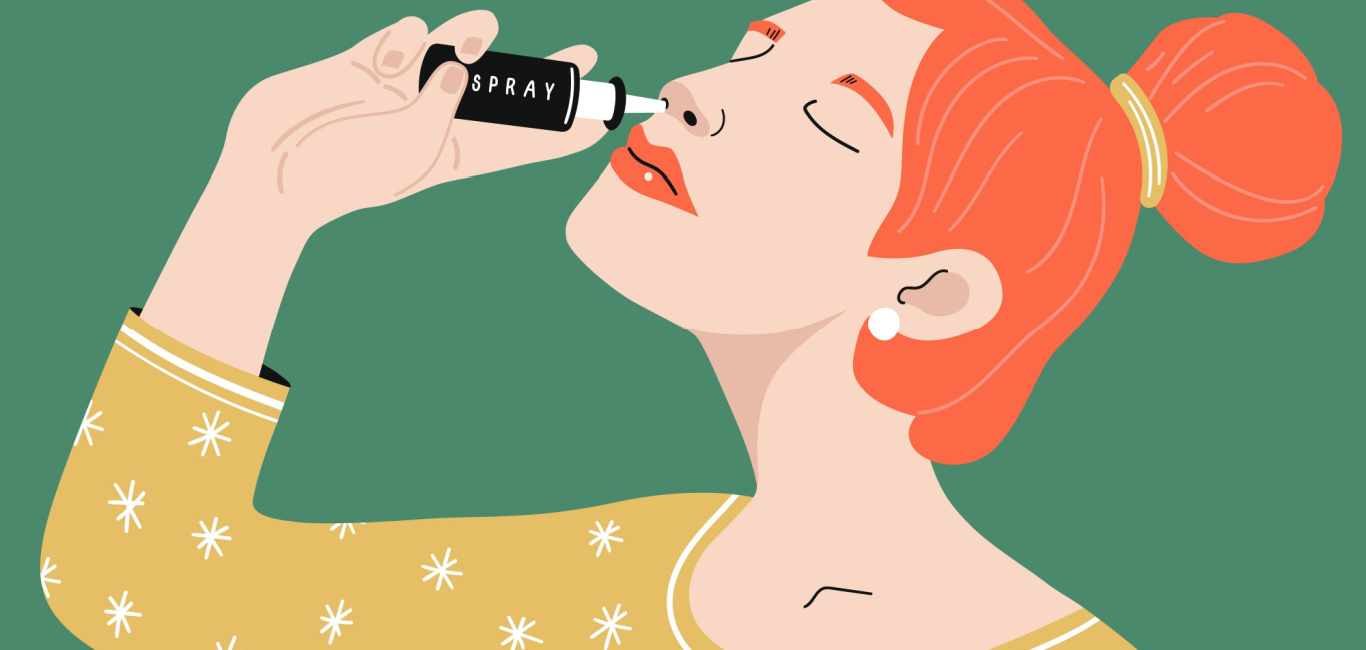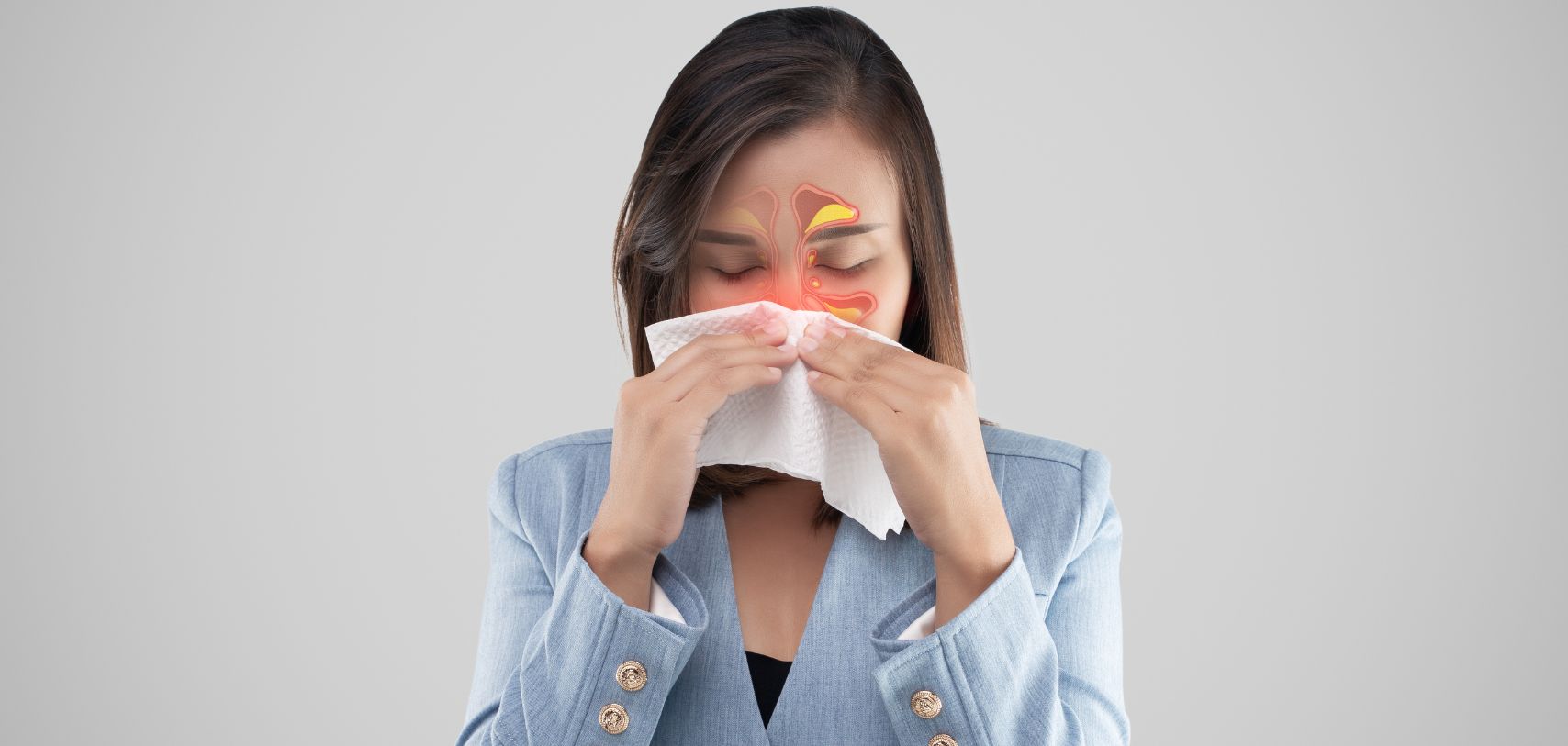
Nasal wash, also known as nasal irrigation or nasal lavage, is a simple yet effective practice to flush out allergens or debris from the nasal passages. that involves using saline solution In recent years the ancient technique has become popular for to its numerous health benefits and a natural approach to relieving respiratory issues.
“By clearing the nasal passages of debris, allergens and mucus, a nasal wash can alleviate various nasal conditions, improve breathing and promote overall well-being,” says Dr Nikhat Parveen, ear, nose and throat (ENT) specialist from Kolkata.
The ancient nasal cleansing technique of jala neti is quite similar to this. In both techniques, one has to tilt the head slightly forward to prevent the water from flowing into the throat, and gradually tilt the squeeze bottle (a neti vessel) or bulb syringes to allow the saline solution to flow into the nasal passage and out through the other nostril.
Dr Udyat Bhatnagar, ENT consultant from Moradabad, says one must concentrate, breathe calmly and not swallow the salt solution at any time while doing these phases: nasal irrigation, switching to the other nostril or repeating the process. “Gently blow your nose to remove any excess saline solution and mucus. Wash and dry the device after each use.”
Respiratory conditions
A nasal wash helps in these respiratory conditions, say Dr Parveen and Dr Bhatnagar:
- Allergies: Nasal irrigation can wash away allergens like pollen and dust, providing relief from seasonal or environmental allergies.
- Sinusitis: For individuals suffering from acute or chronic sinusitis, nasal wash helps reduce inflammation and flush out infected mucus. A 2020 study published in the Pubmed-indexed Brazilian Journal of Otorhinolaryngology found that nasal wash is a safe and effective adjunctive treatment for chronic sinusitis, with no significant adverse effects reported.
- Rhinitis: Irrigating the nasal passages can lessen symptoms of allergic and non-allergic rhinitis, such as sneezing, congestion and a runny nose. A 2012 study published in the American Journal of Rhinology and Allergy found that nasal irrigation significantly reduced the symptoms of allergic rhinitis and improved the quality of life for individuals.
- Cold and flu: A nasal wash can alleviate nasal congestion and reduce the duration and severity of cold and flu symptoms.
According to a 2015 study published in the Cochrane library, researchers found that daily nasal irrigation with saline can prevent nasal symptoms of common cold in a population of otherwise healthy adults. This study also showed that a saline spray has the ability to reduce the symptoms of nasal secretion and/or blocked nose with fewer episodes of upper respiratory tract infection. - Nasal congestion: A nasal wash can give relief from nasal congestion and improve breathing, regardless of whether it is caused by a cold, flu or other factors.
- Post-nasal drip: When mucus secretions from the nose get into the throat, they cause cough and congestion. A nasal wash can remove excess mucus from nasal passages and ease throat irritation.
Experts agree on the health benefits of using a nasal wash but advise everyone to consult a healthcare professional before starting any new health regimen.
Who can have a nasal wash?
Dr Parveen says a nasal wash is safe for children and older adults. However, it is essential to ensure that the technique is performed correctly to avoid any problems or discomfort.
“In case of severe nasal congestion in kids, a paediatrician can perform a nasal wash [using] a bulb syringe,” she says. “Adults can perform this without expert monitoring.”
Doing a nasal cleanse before going to bed can ensure sound sleep and easy breathing.
When to have a nasal wash
When and how often should one have a nasal wash? Dr Bhatnagar says it depends on an individual’s symptoms and condition. Mornings and bedtime are recommended for a wash.
For those dealing with allergies or mild congestion, performing a nasal wash once a day may be sufficient.
For cold or sinus infections, one can have two or three nasal washes a day.
For specific conditions, it is essential to follow the recommendations and guidelines of a healthcare professional.
Individuals who do yoga and pranayama as a health routine do jala neti every day and claim a healthy breathing and smelling capacity. “It depends on the individual’s body response and if one experiences any irritation or redness after nasal wash, seek medical advice before doing it the next time,” says Dr Bhatnagar.
In most cases, the irritation or uneasiness may be due to inappropriate concentration of the saline solution, but it can also be due to the water used and other reasons as well.
Preparing the saline solution
To prepare a saline solution for nasal wash, it is crucial to follow health authority guidelines to ensure the mixture is safe and effective. The United States Centers for Disease Control and Prevention recommends the following method:
Ingredients:
- Distilled or sterile water (boiled and cooled) – 40 ml (or a large cup)
- Non-iodised/ pickling or canning salt – 1 teaspoon (5.69 g)
- Baking soda – 1 teaspoon (5.69 g)
Instructions
- Wash your hands thoroughly before preparing the saline solution.
- Measure out the distilled or sterile water and pour it into a clean container.
- Add the salt and baking soda to the water.
- Stir the mixture until the salt and baking soda dissolve completely.
- Transfer the saline solution into a nasal wash device, such as a neti pot or a squeeze bottle, as per user instructions.
Conclusion
A nasal wash is a natural and safe practice that can relieve various respiratory conditions, including allergies, sinusitis and nasal congestion. It is a simple technique that can be performed by people of all ages and is supported by recent studies as an effective remedy.
By following medical guidelines for preparing the saline solution and using the right technique, individuals can include nasal wash in their daily healthcare routine and experience respiratory health and overall well-being.
As always, we advise you to consult a healthcare professional before starting any new health regimen. Ensure first that it suits your specific needs and conditions.

















